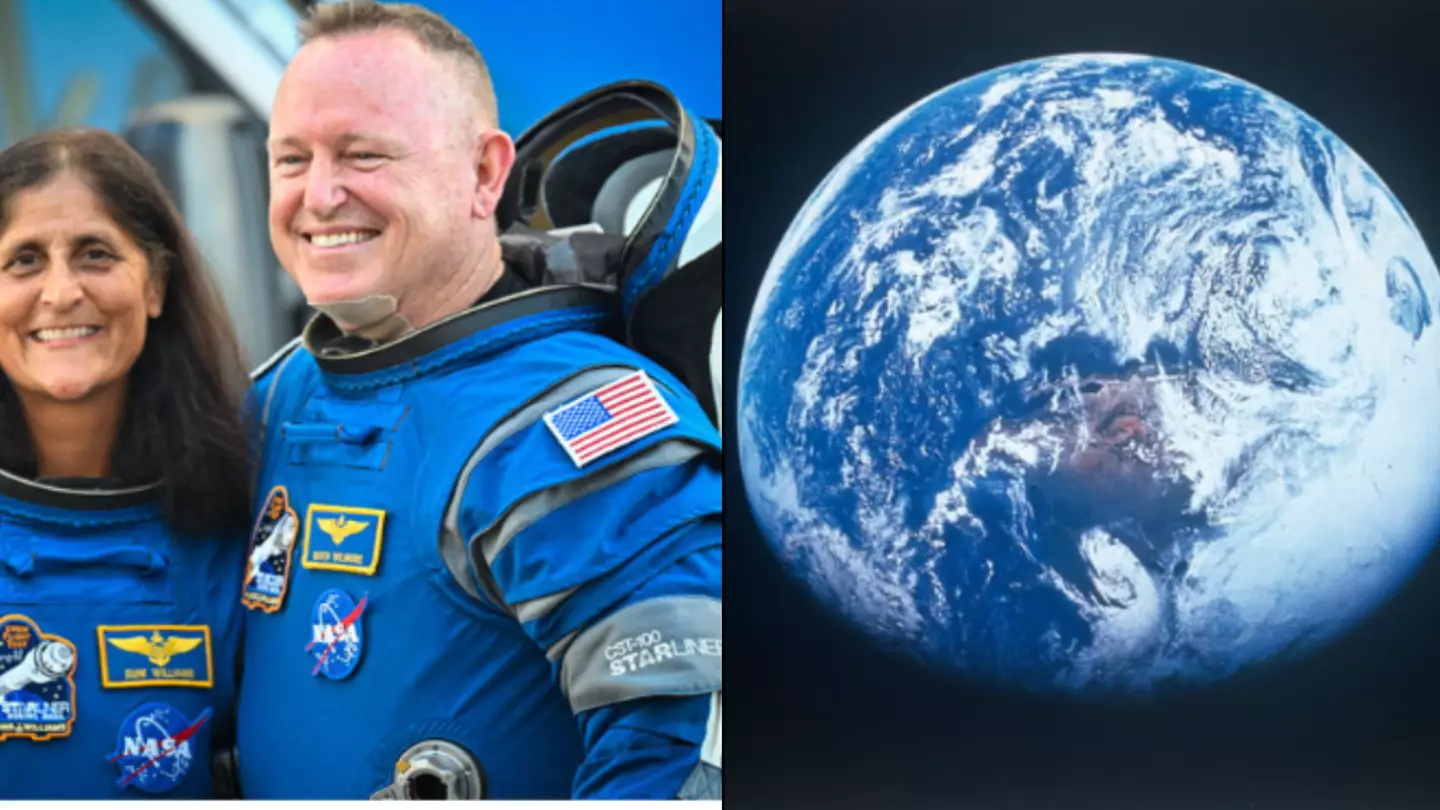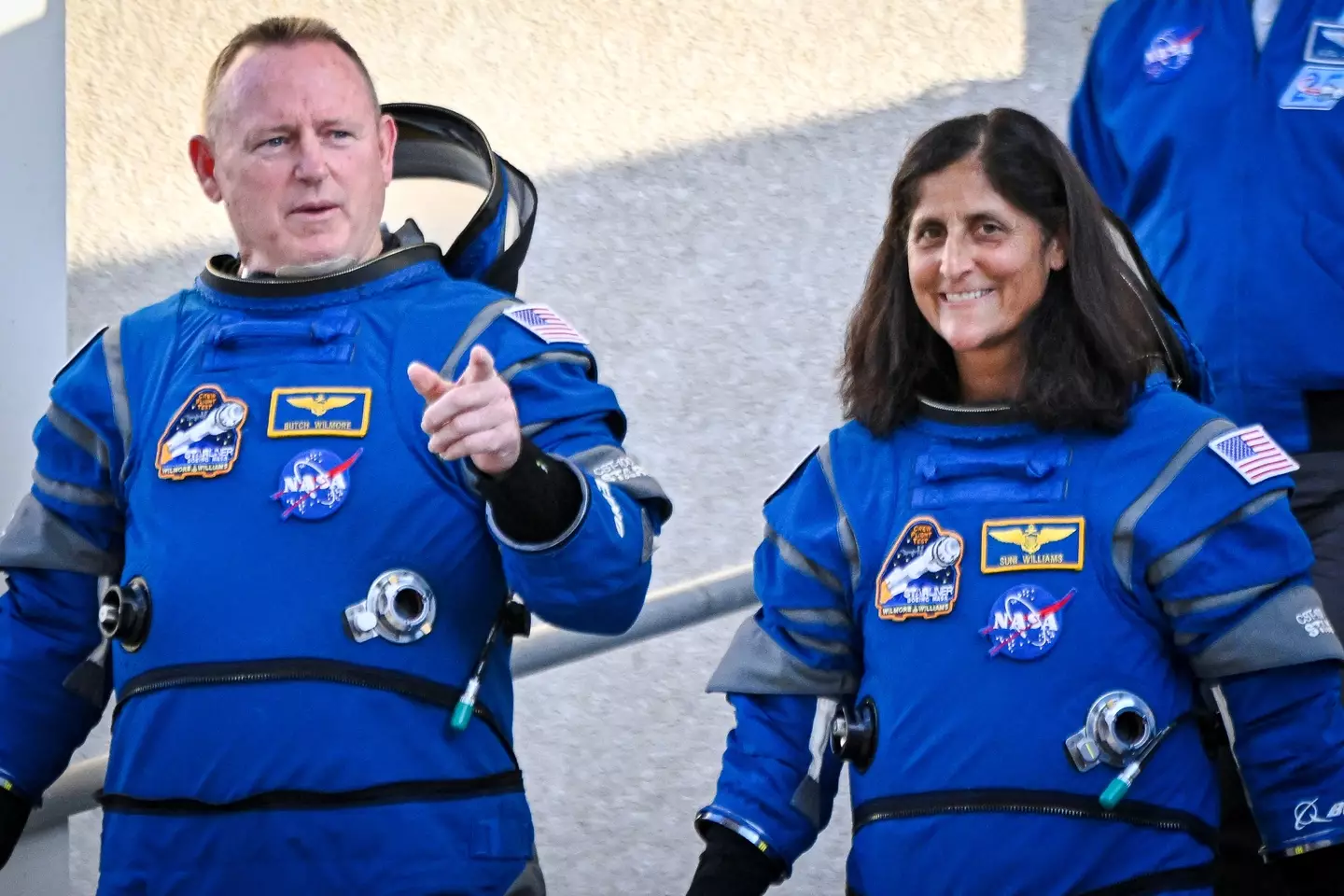
The two astronauts who have been stranded in space for 70 days are still playing the waiting game while stuck on the International Space Station (ISS).
NASA test-pilots Barry 'Butch' Wilmore, 61, and Sunita Williams, 58, set out on an eight-day trip on 5 June.
However, this excursion into space has ended up being extended - drastically - after the new Boeing Starliner capsule that was supposed to bring them home experienced a number of technical issues.
As a result, the pair have been trapped on the ISS while they wait for NASA to come up with some kind of solution to get them back down to Earth.
Advert
But unfortunately, things are still looking quite bleak - and the space agency recently warned that it could be as late as next year before Wilmore and Williams are rescued.
NASA’s Commercial Crew Program manager Steve Stich explained last week that the duo's only choice could be to hop on the return flight of another mission in February 2025.

"We have been working with SpaceX to ensure they are ready to respond with Crew-9 as a contingency," Stich said.
"We have not formally committed to this path, but we wanted to ensure we had all that flexibility in place.
Advert
"Our prime option is to return Butch and Suni on Starliner. However, we have done the requisite planning to make sure we have other options open.
"I think Butch and Suni are ready to do whatever we need them to do."
Now, NASA has announced it needs at least another week to work out how long the astronauts will be confined to the ISS because of the issues with Boeing's capsule.
NASA's biggest concern is that the Starliner could transform into a fireball in Earth's atmosphere as it attempts to return, which obviously doesn't bode well for those on board.
The space agency said on Wednesday during a press conference: "That's why we're looking so closely at the thruster jets and even thinking about how the larger thrusters work."
Advert

Boffins have reiterated that a February 2025 return is one of the most likely scenarios, explaining that Wilmore and Williams would essentially hitch a ride home on Elon Musk's Space X Dragon ship which is setting off in September.
However, they don't have the right spacesuits to ride on this craft, so officials have warned they would have to rawdog the flight home - AKA, head back to Earth unsuited and therefore unprotected.
But the clock is ticking and the astronauts could pay the price with their health.
The other major concern is that every passing second in space will be taking a huge toll on the astronauts both mentally and physically.
Advert
They are exposed to an increasing amount of radiation as time goes on, which could create problems further down the road, despite the extensive shielding coating the ISS to protect them.
However, NASA's chief astronaut Joe Acaba says Williams and Wilmore appear to be 'doing fine'.
He reassured people that the pair 'embark on missions fully aware of the various scenarios and outcomes that may become our realities' and that they 'knew this mission might not be perfect'.
"In my office right now I can watch them working on the ISS," Acaba added. "But we are human. And this is hard on crew members and their families, and we take that into account."